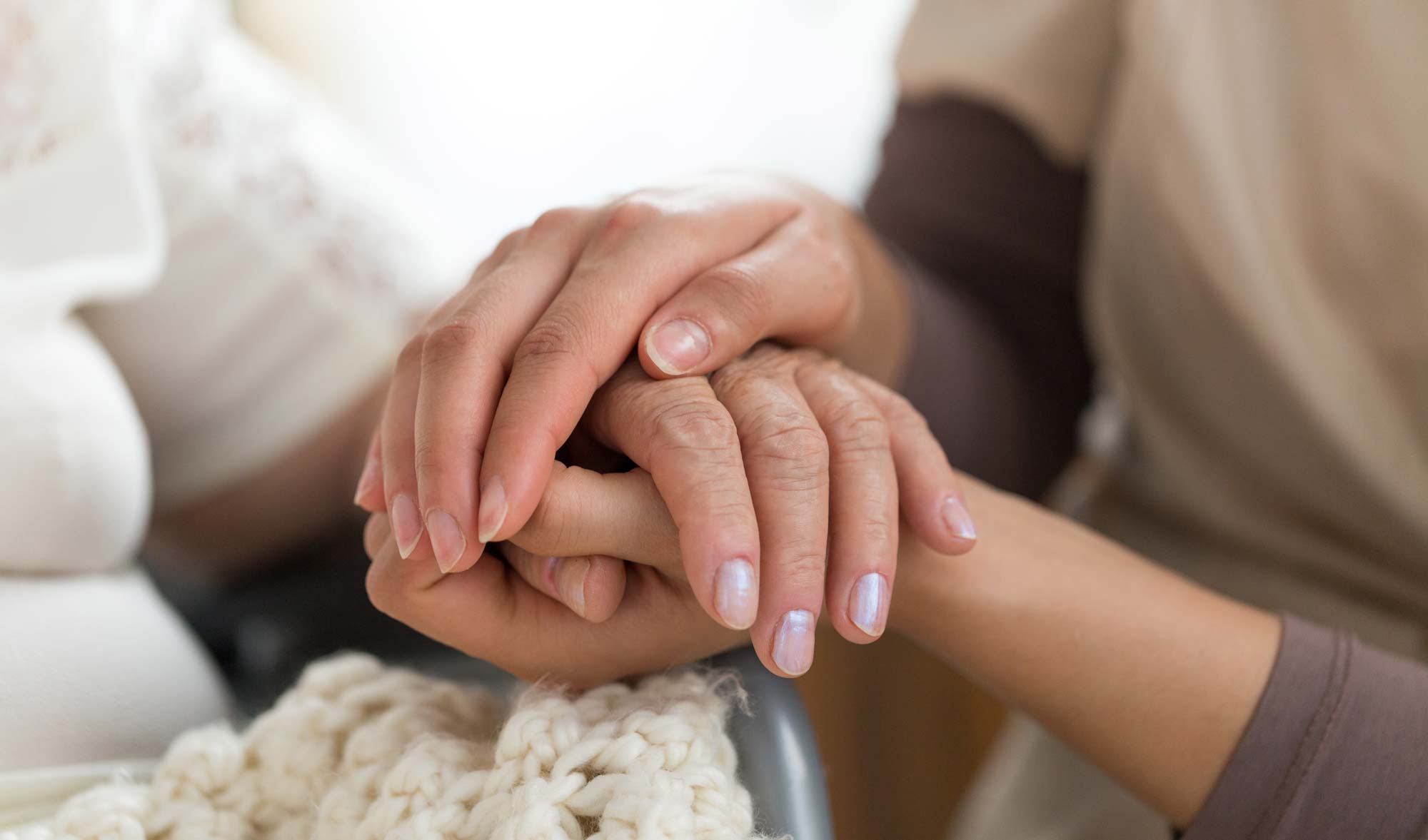Depression
What it is: Depression is a mental disorder marked by a sad or irritable mood lasting more than two weeks.
What it is not: Everyone gets sad or irritable from time to time, but for most people these moods only last for a few hours or a few days. When these feelings last for several weeks without improving, a person’s way of thinking can be altered, and the person may become clinically depressed.
Who gets it: About 5% of the population suffers from depression, but this number increases with age, disability, or illness. Depression is four times more likely to strike individuals over age 65 than younger people. Fifteen percent of older adults are depressed. People with disabilities or illness, and those who take care of them, have depression rates ranging from 20% to 50%.
What causes it: Depression has many different causes, such as
• Medication side effects, particularly from drugs used to treat arthritis, heart problems, high blood pressure, or cancer.
• Illnesses such as Alzheimer’s disease, Parkinson’s disease, stroke, hormonal disorders, and others.
• Genetics—it may run in families.
• A traumatic event, such as a death in the family.
• Changes or differences in brain chemistry.
Depression is Not a Normal Part of Growing Older | Alzheimer’s Disease and Healthy Aging | CDC
Anxiety
What it is: Anxiety is a feeling of concern or worry, and it includes increased alertness or
awareness. It can be mild, moderate, or severe; when very severe, it can become a state of panic.
What it is not: Mild to moderate anxiety is a normal part of living and can even be helpful when we must focus on something urgent or important. As a normal reaction to a stressful situation, it helps us act. When anxiety becomes a long-term condition, or becomes severe, the person becomes overly focused on specific details and cannot think of anything else. In this case, most of the individual’s behavior is directed toward relieving the anxiety.
Who gets it: From 3% to 8% of the population have severe anxiety, with about 15% of people experiencing it at some point in their lives. It is a very common disorder in the elderly and is more common in women than men.
What causes it:
Some of the many causes of anxiety are:
• Persistent stress.
• Extreme change.
• Illness, particularly cancer, heart disease, and chronic illnesses.
• Chemical changes in the brain.
• Abnormal brain functioning.
• Medication side effects.
• Drug abuse or withdrawal.
Anxiety in Older Adults | Mental Health America
Signs and Symptoms of Depression and Anxiety
Signs of Depression
If a person has four or more of these symptoms lasting two weeks or more, he or she may be depressed.
• Sad, depressed, or apathetic mood. May cry a lot or complain of feeling empty.
• Irritability, agitation, grumpiness.
• Disturbed sleep—either difficulty sleeping or sleeping more than usual.
• Fatigue and loss of energy.
• Changes in appetite and weight either increased or decreased.
• Loss of interest or pleasure in normal activities, such as self-care or social activities. Withdrawal from others.
• Feelings of worthlessness, guilt, helplessness, hopelessness, or self-reproach.
• Thoughts of death or suicide, or attempted suicide.
• Difficulty thinking, concentrating, focusing, or remembering.
• Slowed or agitated movements or speech.
• Complaining of aches and pains, dizziness, blurred vision, racing heart, anxiety, or vague discomforts.
• Constant complaining.
• Mood swings.
• Excessive alcohol use.
Signs of Anxiety
There are five main types of severe anxiety, and each has different symptoms.
• Generalized anxiety disorder: This condition involves excessive and unreasonable anxiety and worries lasting at least six months. Signs include restlessness, fatigue, difficulty concentrating, irritability, muscle tension, shaking, crying, pacing, sweating, rapid breathing, rapid heartbeat, fearfulness, and sleep problems.
• Panic disorder: People with this condition have recurring attacks of panic. They may have dizziness, faint feelings, sweating, trembling, chills, flushes, nausea, numbness, heart palpitations, or chest pain. These attacks occur suddenly and last several minutes.
• Obsessive-compulsive disorder: This disorder causes recurrent and persistent thoughts, impulses, or images that are unwanted and inappropriate. The person performs repetitive behaviors in response to these thoughts.
• Phobias: These irrational, intense fears of certain things or situations interfere with normal functioning.
• Posttraumatic stress disorder: This occurs after a person experiences or witnesses a traumatic event. Symptoms include recurring memories, nightmares, and flashbacks.
What should be done?
Even though depression and anxiety are common, they are NOT normal, even among the disabled, ill, or elderly. These signs should always be reported to a physician. Other diseases can cause some of these symptoms, so the doctor will have to decide on a diagnosis and a treatment. Never assume that these signs are a normal part of disability, illness, or aging.
Preventing Depression and Anxiety
Although many types of depression and anxiety cannot be prevented, there are some general things that everyone can do to lower the risk of developing these conditions.
1. Keep and maintain friendships and social activities.
2. Develop enjoyable interests or hobbies.
3. Stay physically active. Exercise and stay physically fit.
4. Stay mentally active. Read, take classes, and learn new things.
5. Maintain contact with family members.
6. Eat a balanced and nutritious diet. Avoid sugar, caffeine, and alcohol.
7. If you take medicines that might have depression or anxiety as side effects, follow the doctor’s directions on using the medicines to lower the risk of those side effects.
Caring for people with Depression or Anxiety
Depression: The goal of care is to lift the person’s mood.
• Encourage depressed people to express their feelings. Listen to what they say. Accept them as they are without making judgments. Give them time to get their thoughts together and to tell you what they are thinking and feeling. Help them feel valued.
• Brighten the environment by hanging pictures, posters, or family pictures. Make family photo albums easily available. Keep the environment neat and clean.
• Encourage pleasant activities, such as listening to music or performing a hobby.
• Encourage socialization. Start with one-to-one conversations, and gradually help them participate in larger social events.
• Encourage daily exercise or activity. Even the disabled can usually move a few body parts.
• Encourage as much self-care as possible. Help the person gain a sense of control by letting them make as many independent decisions as possible.
• Pay attention if someone talks of self-injury or suicide. Always report this talk to a
supervisor.
• Be sure that the person takes his or her medications in the correct way and at the correct time.
Anxiety: The goal of care is to lower the person’s anxiety level.
• Listen to a person’s fears and anxieties. Respond with reassurance and support.
• The environment should be quiet and less stimulating than normal.
• Many people will never become completely free from anxiety. Help them learn to accept and tolerate a certain level of worry and anxiety. If they believe that you will assist them with their problems and keep them safe, their anxiety may be relieved.
• Sometimes an anxious person can be distracted if you help them think about something pleasant or relaxing or have them picture a peaceful image.
• Help the person relax each muscle, guiding him or her to relax every muscle consciously and progressively from head to toes. Instruct him or her to breathe slowly and deeply.
• Help anxious people recognize that, although their feelings are real, their fears are not based on reality. Gently point this out: “You’re feeling anxious, but you are really okay.”
• Ensure that medications are taken as prescribed.
The Warning Signs of Suicide
Sometimes anxiety and depression occur together, or one may lead to the other. People suffering from either of these illnesses may decide they want to end their life. It is important to be alert to things that might indicate a person is seriously considering suicide. The suicide rate is twice as high in people over age 65 as it is in younger age groups. Untreated or mistreated depression can lead to suicide.
Pay attention to these warning signs and report them:
• Talking about suicide. Statements such as “I have no reason to go on living” are danger signs.
• Being preoccupied with death.
• Giving things away.
• Stockpiling pills or obtaining some sort of weapon.
• Refusing to follow doctor’s orders about medications or diet.
• Making unusual visits or calls to family and friends and saying goodbye to loved ones.
• Getting affairs in order or making funeral arrangements.
• Losing interest in things or people that used to be important.
• Suddenly becoming happier and calmer after a period of depression or anxiety.
• Talking about how worthless or helpless they are, saying that they have no hopes or plans.
Suicide Prevention
Here are some things you can do to help prevent someone from taking their own life:
1. Recognize anxiety and depression in others and help them get appropriate treatment.
2. Remove any weapons and be sure the environment is safe and secure.
3. If you suspect that someone is thinking about suicide, ask them if they are. Do not be afraid that you will be giving them ideas. If they tell you they are having these thoughts, report it.
4. Be sure a depressed or anxious person is seeing the doctor as ordered and getting their medications.
5. Reassure a suicidal person of how much you care. Explain that depression is no one’s
fault, that it can be treated, and that suicidal thoughts are temporary and will go away.
6. Do not try to minimize the individual’s problems. Don’t tell him or her how hurt his or her family will be or that he or she has everything to live for, because doing so just makes him or her feel guilty and even more hopeless.
7. If you suspect that someone is thinking about suicide, always report your suspicions to the appropriate person. Do not think that you are imagining things or getting worried for nothing. It is much better to be cautious in this situation.
6/24/2021 Emalee Walton



